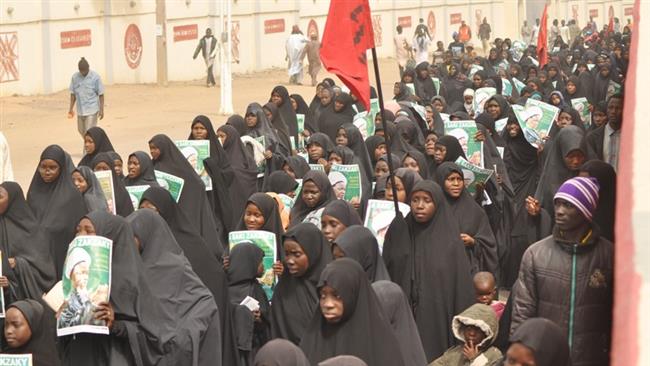
RNA – The decision, announced during a Tuesday press conference by the Islamic Movement of Nigeria (IMN), came after Nigerian authorities did not allow IMN’s legal team to meet with detained leader Sheikh Ibrahim al-Zakzaky.
The legal team said it was "unethical and unprofessional" to represent a client whom it has not seen.
The Nigerian army attacked Shi’a Muslims attending a religious ceremony in Zaria on December 12, touching off several days of a crackdown in which hundreds of people were killed.
The army accused participants in the ceremony of blocking the convoy of its chief of staff and attempting to assassinate him, a charge which they have categorically denied.
Nigerian forces later raided Zakzaky’s home and arrested him after killing those protecting him. The cleric himself was injured in the attack and was taken into custody along with dozens of his supporters. They are being held incommunicado since then.
The attacks led to the deaths of a large number of the members of the religious community, including three of Zakzaky’s sons. The Shi’a cleric is said to have been charged with “criminal conspiracy and inciting public disturbances.”
In a Tuesday interview with PressTV, Zakzaky’s daughter, Suhaila, gave an eyewitness account of the army’s attack on their house.
“Unexpectedly, we just heard gunshots in the area of the house, and that went on for the whole night, for half the next day. As it was going on, people were being killed in the morning … They (troops) killed as many people they found in our house, probably everyone,” she said.
She made the remarks as a large number of people took the streets in the Nigerian state of Kaduna to demand the release of Sheikh Zakzaky.
“The government will understand that we want our leader released… The corpses of our brothers and sisters that are held by the government should be released to us for (holding) funeral,” a protester said.
Human Rights Watch believes “at least 300” people were killed in the attacks, while Amnesty International puts the figure at “hundreds,” describing the Nigerian army’s violations as “shocking.”
The London-based Islamic Human Rights Commission (IHRC) has said there was credible evidence of mass graves in Nigeria following the attacks.
The rights group said the Nigerian military had secretly buried hundreds of bodies in the graves after storming the house of the Shi’a cleric.
R111/112/C